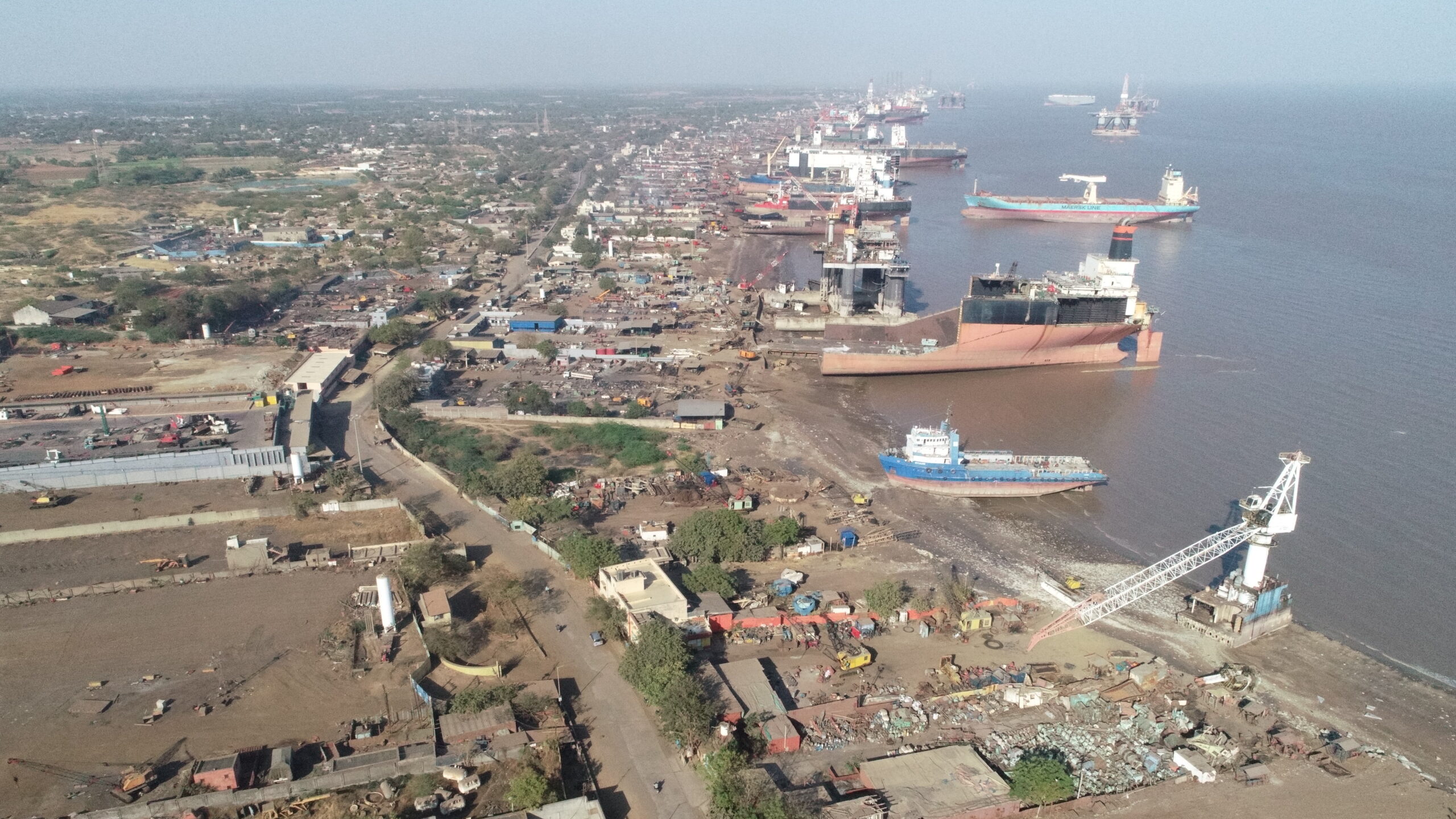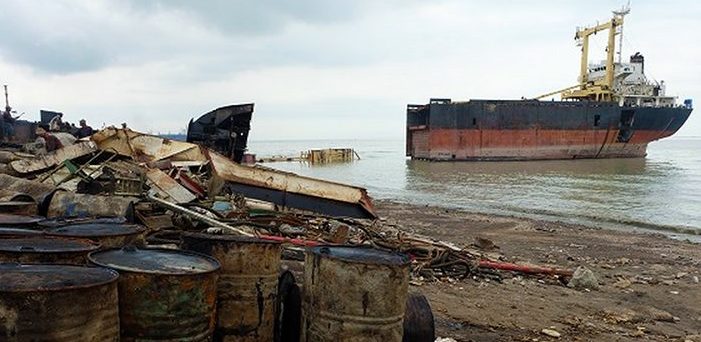Bangladesh’s Shipbreaking Sector Struggles to Meet Looming Green Recycling Deadline
Dhaka, April 27, 2025 — As the clock ticks towards a critical international deadline, Bangladesh’s shipbreaking industry is at a crossroads. The country faces mounting pressure to transition from its historically hazardous and polluting shipbreaking practices to internationally certified green ship recycling facilities. Yet, despite efforts initiated nearly a decade ago, the pace of progress remains sluggish, threatening both the environment and the future of an industry that employs thousands.

In June 2025, the Hong Kong International Convention for the Safe and Environmentally Sound Recycling of Ships (HKC) will come into force. Under its rules, only ship recycling yards that comply with stringent safety and environmental standards will be allowed to accept vessels for dismantling. For Bangladesh, currently the world’s second-largest shipbreaking hub, failure to meet these requirements could result in the loss of international business as shipowners seek compliant facilities elsewhere.
The urgency is not new. Bangladesh formally began its green transition in 2017, when PHP Ship Recycling Yard in Chattogram became the first domestic facility to obtain international green certification. This milestone was hailed as the beginning of a transformative journey for an industry notorious for its hazardous working conditions, environmental contamination, and frequent accidents.
However, eight years later, only a fraction of the industry has followed PHP’s example. According to data from the Bangladesh Ship Breakers and Recyclers Association (BSBRA), only seven shipbreaking yards had received international certification as of March 2025. This is a paltry figure when compared to the country’s total of 248 registered shipbreaking yards, as recorded by the Department of Inspection for Factories and Establishments.
The situation appears even more dire when one considers that only 30 to 35 yards are currently operational. Most yards have either been abandoned, shut down due to regulatory issues, or remain inactive due to economic uncertainties. Nevertheless, the majority of operational yards have yet to complete the costly and complex transition to green recycling standards.
Financial Barriers Stall Progress
Industry insiders point to significant financial hurdles as the chief reason for the lagging green transition.
“It costs Tk 30 to Tk 40 crore to convert even a small shipbreaking yard into a green-certified facility,” said Taslim Uddin, owner of KR Ship Recycling, one of the few certified green yards in Bangladesh, during an interview with The Daily Star.
According to Uddin, the return on such a heavy investment is painfully slow. “It may take at least 10 to 12 years, or more, to recover this amount through profits,” he explained. The sector’s slim profit margins, combined with the time needed to break even, make green certification an unattractive prospect for many operators.
The reluctance of financial institutions to offer loans compounds the problem. Given the risks associated with the shipbreaking industry—such as fluctuating steel prices, unpredictable government regulations, and the possibility of sudden bans—banks and financial lenders are wary of providing the necessary capital.
“Without strong financial support and incentives, expecting a rapid transformation is unrealistic,” Uddin added.
Policy Uncertainty Adds to Industry Anxiety
Besides financial constraints, frequent changes in government policies and enforcement measures have added to the sense of uncertainty within the industry.
Operators fear that sudden regulatory shifts, or the imposition of stricter environmental laws without sufficient notice, could render even recent investments obsolete. This perceived instability makes it even more difficult for yard owners to justify large, long-term investments in green upgrades.
Many in the industry argue that the government needs to play a more proactive role by offering clear, consistent policy direction and financial support to facilitate the green transition. Subsidies, low-interest loans, and tax breaks for green-certified yards could accelerate compliance, stakeholders suggest.
Environmental and Human Costs
The slow transition is not just a business issue; it carries severe environmental and social implications as well.
Traditional shipbreaking practices in Bangladesh have long been associated with significant ecological harm. Toxic substances such as asbestos, heavy metals, and oil residues often leak into the soil and nearby waters, causing lasting damage to marine ecosystems and endangering public health. Workers, often operating without proper safety equipment, face high rates of injuries, illnesses, and even fatalities.
Without a rapid shift to green practices, these dangers will persist, undermining Bangladesh’s broader environmental commitments and putting vulnerable communities at risk.
Employment at Stake
Beyond environmental concerns, the livelihoods of thousands hang in the balance. The shipbreaking sector directly employs between 8,000 and 9,000 workers, with many more indirectly dependent on related industries such as steel re-rolling, transportation, and waste management, according to estimates from the BSBRA.
If Bangladesh fails to meet the HKC standards by June 2025, international shipowners may blacklist the country’s yards. This would lead to a sharp decline in the availability of vessels for dismantling, resulting in mass layoffs and exacerbating unemployment in regions heavily dependent on the industry.
“The stakes are very high. If we lose international trust, it will take years, maybe decades, to rebuild it,” warned BSBRA President Abdul Hadi.
A Narrowing Window for Action
Time is running out. With less than two months before the HKC’s enforcement, urgent action is needed from both the government and industry stakeholders.
Experts suggest a multi-pronged approach is necessary: immediate financial incentives for green upgrades, robust capacity-building programs, consistent regulatory frameworks, and active engagement with international partners to share best practices.
While the challenges are daunting, successful examples from other countries offer a roadmap. India, for instance, has made notable progress in upgrading its Alang-Sosiya ship recycling yards to comply with the HKC, largely through a mix of government support and private sector investment.
Bangladesh must now decide whether it will seize this moment to transform its shipbreaking sector or risk falling behind in a rapidly changing global industry.
The coming weeks will be crucial in determining whether Bangladesh can meet the green standards required by the HKC or face isolation from the lucrative global ship recycling market.
For now, the nation’s shipbreaking yards stand at a pivotal juncture—caught between an unsustainable past and an uncertain future.
Author: shipping inbox
shipping and maritime related web portal








